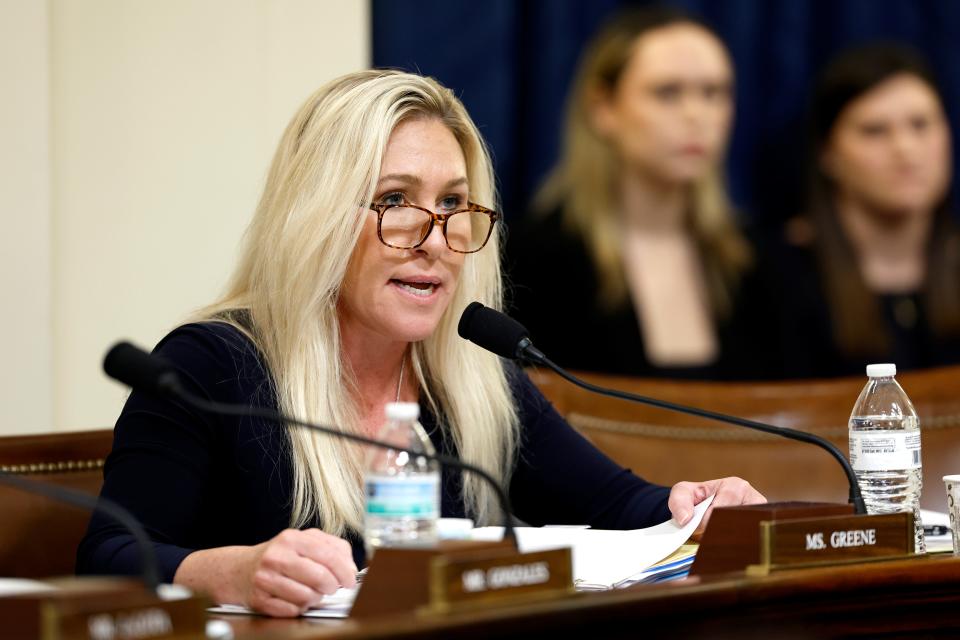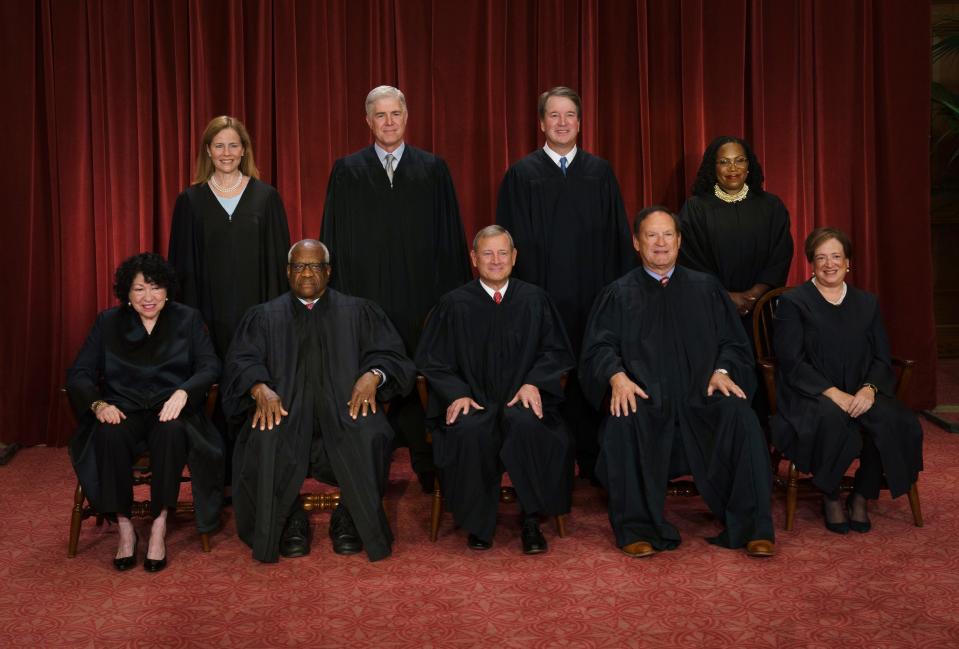Have you realized the Supreme Court is the only part of our government doing its job?
In the coming days, the Supreme Court is expected to hand down decisions on 14 outstanding cases remaining for the term, which serves as a sad reminder that the nine justices make up the only branch of our federal government actually doing its job.
With cases considering the future of the administrative state, the legality of abortion in medical emergencies and former President Donald Trump’s immunity from prosecution for acts during his time in office, the nation's highest court has taken on the responsibility of deciding things nobody else seems to want to touch.
The Supreme Court hears about 1% of petitions received, or about 60 cases a year as of late.
Compare that with the 27 bills Congress passed last year and you see the court is making twice as many impactful constitutional decisions than Congress is passing laws, period.
Congress is a joke of ineffectiveness
Now, all of this isn’t to say that the justices are perfect or that people can’t take issue with their decisions.
However, you can’t say that the justices aren’t doing their jobs or that Congress isn’t failing at doing its job.

When was the last time Congress had a busy week solving a problem to make things better? Sure, our legislators are busy arguing over the debt ceiling (instead of actually addressing government spending) or when they have to pick a new House speaker (after hastily disposing of the previous) or expelling degenerate members. But these are all solutions to problems they created.
Instead, Republicans in Congress are more focused on spending their time defending their felonious presidential candidate, and Democrats are bickering over how best to protest Israeli Prime Minister Benjamin Netanyahu's congressional address next month.
I'm not voting in 2024: I'm not voting for Trump or Biden. You want my vote? Choose better candidates.
Congress was so unproductive in 2023 that writers at NPR were able to summarize every bill they passed in fewer than 1,000 words.
"Give me one thing I can campaign on and say we did,” Rep. Chip Roy, a Texas Republican, asked of his peers last year, and surely other members share his sentiment, even if they are the minority.
The Supreme Court is making decisions that impact our lives

Not only are the justices doing their own job, but they often pick up the slack left by Congress. This was precisely the issue at stake in Garland v. Cargill, the case decided by the court this month reversing the Trump-era ban on “bump stocks” through executive action.
Following the deadliest mass shooting in modern U.S. history, when a gunman killed nearly 60 people and injured more than 850 at a Las Vegas music festival in October 2017, there was immense political pressure on Congress to take action banning bump stocks, the instrument used in the shooting that enabled the gunman to emulate fully automatic fire on a semiautomatic rifle.
Congress seemed open to some level of rare agreement on the action, but before its processes could run their course, then-President Trump directed his attorney general to propose rule changes reclassifying bump stocks as machine guns, and Congress gave up on the effort.
Trump should pick Haley: Nikki Haley is the clear choice for Trump's VP pick. So I'm sure he'll go full MAGA.
The Supreme Court was then forced to decide and ultimately nullify the Trump action, saying the interpretation by the Bureau of Alcohol, Tobacco, Firearms and Explosives of existing law blatantly went beyond the scope of what the Founding Fathers intended. So, in a nearly seven-year ordeal, Congress was given an easy escape from doing its job, the executive branch overreached and the Supreme Court was tasked with sorting out the mess.
This could have been avoided had Congress done its job and the executive stayed in its lane.

This is just one example of Congress doing nothing, leaving the court to take action. Anyone looking for more should take a look through some of Justice Neil Gorsuch’s concurring and dissenting opinions, in which he frequently takes the extra time to outline how Congress could fix the problem before the court if only lawmakers could be bothered.
Instead, the justices are burdened with decisions they shouldn’t have to make while lawmakers accomplish the bare minimum to keep the country running, often failing at that.
There are no signs things will get better
The misalignment of our three branches of government remains one of the core problems with our nation’s current political state. If left without remedy, these trends will only worsen the dysfunction in each branch of government and the increased scrutiny on the court.
The less Congress does, the more the court is tasked with alleviating some of the burden suffered from ambiguous statutes.
Opinion alerts: Get columns from your favorite columnists + expert analysis on top issues, delivered straight to your device through the USA TODAY app. Don't have the app? Download it for free from your app store.
Trump's three Supreme Court appointees are the most significant legacy of his presidency, shaping the landscape of our politics for the foreseeable future. In an election year, the importance of the court ought to be weighed by both parties even more, as the next president could get a lifetime justice appointment.
The court has four justices who will be in their 70s under a new presidential term; multiple have known health problems.
Some Democrats are already concerned with Justice Sonia Sotomayor remaining on the court into a potential second Trump term.
The most important thing Congress does nowadays is confirm the justices who do the job for them, and even that has become a partisan sideshow. We can debate the Supreme Court's decisions, many of which are expected this week, but it's clear that Congress is unwilling to do its job, so we'll be stuck with the broken system we've been dealing with for years.
Dace Potas is an opinion columnist for USA TODAY and a graduate of DePaul University with a degree in political science.
You can read diverse opinions from our USA TODAY columnists and other writers on the Opinion front page, on X, formerly Twitter, @usatodayopinion and in our Opinion newsletter.
This article originally appeared on USA TODAY: Supreme Court decisions do what unproductive Congress won't: Its job


